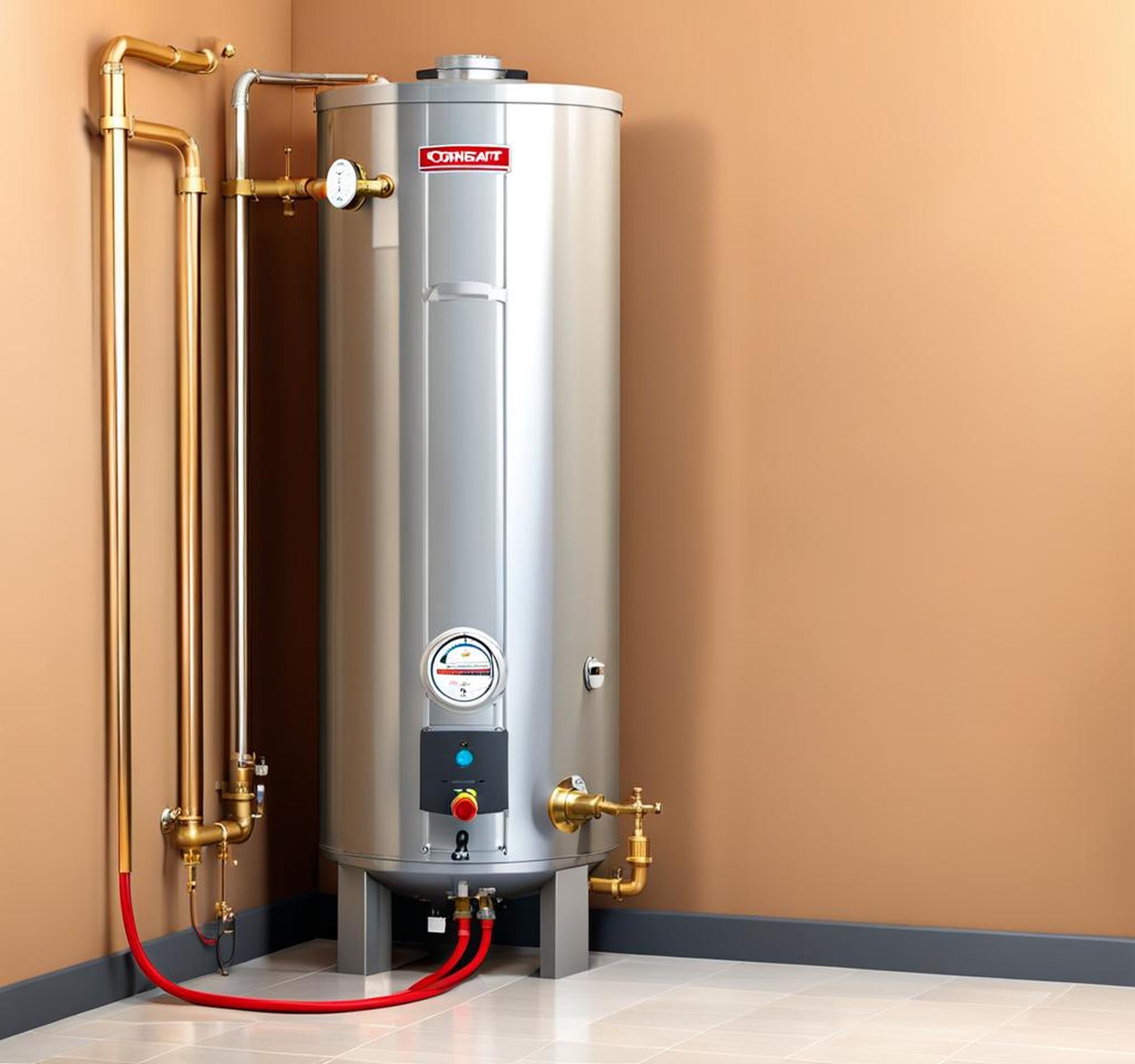An overflowing hot water heater can be extremely disruptive and cause water damage if left unchecked. But what actually causes a water heater to overflow in the first place?
Reason 1 – A Faulty Float Valve Overfills the Tank
Inside your hot water heater’s tank is a float valve, which controls the water level by shutting off the intake valve once the tank reaches its capacity. If the float valve becomes stuck, worn out, or improperly adjusted, it can fail to stop the water flow. This leads to overfilling and overflowing from the drain tube.
Signs your float valve isn’t working properly include:
- Water dripping from the overflow tube
- The hot water tank feeling heavier than usual
- Reduced hot water capacity
If left unaddressed, a faulty float valve can cause substantial water damage over time. Catching it early is critical. Call a technician to inspect the valve and make any repairs or adjustments to stop the overflow.

Adjusting the Water Level
If replacing the float valve doesn’t resolve the overflow, the water level may need adjusting. Carefully drain excess water until it’s below the overflow tube. Mark and monitor the level to see if overflow occurs again. If so, there may be additional issues causing the overfill.
Reason 2 – Failing T&P Relief Valve Discharges Water
All water heaters have a T&P (temperature and pressure) relief valve. This safety valve releases water if the temp or pressure in the tank gets dangerously high, preventing explosion. It routes discharged water through the overflow tube.
A failing T&P relief valve that’s stuck open or isn’t sealing properly allows water to escape. Signs include:
- Dripping from the overflow, even when not in use
- Reduced hot water pressure
- Cloudy/discolored water
Have a technician inspect the valve. They can test it by pulling the release lever to see if water keeps flowing out. If so, the valve likely needs replacing.
When to Call a Professional
While minor T&P valve issues can be DIY, replacement valves must be precisely rated for your water heater. Improper installation is dangerous. Calling a qualified plumber ensures the job is done correctly.
Reason 3 – Leaking Tanks Crack and Overflow
When an aging hot water tank develops cracks or pinhole leaks, water seeps out and drains through the overflow tube. Ignoring small leaks inevitably leads to bigger cracks. Eventually catastrophic rupturing and flooding can occur.
Check around the tank yearly for any drips or moisture. Catching leaks early allows for repairs or planned replacement, avoiding untimely mid-life tank failures. Call a technician immediately if you discover wet areas or cracked tank walls.
When to Repair vs. Replace Your Water Heater
For minor leaks or cracks, metal tanks can often be repaired via patching/sealing products. But if damage is extensive, replacement is the smarter long-term option. Consider replacing plastic tanks at the first sign of leaks.
Confirming What’s Causing Your Hot Water Heater Overflow
While faulty valves and leaky tanks are the most common overflow causes, other issues can also be at play. Following a systematic diagnostic process is key to pinpointing the root problem accurately.
Start by inspecting the physical water heater unit. Check valves, tubes, seals for signs of drips or damage. Then move to evaluating water pressure, flushing sediment, and checking related areas for leaks. Still unsure? A professional assessment can detect causes you may overlook.
Preventing Future Water Heater Overflows
Once any current water heater issues get addressed, keeping overflow at bay long-term relies on diligent maintenance:
- Annual inspections to check valves, tanks, pressure
- Routine flushing to prevent sediment buildup
- Testing T&P valves regularly
- Replacing core parts before they fail
Upgrading to a newer, more reliable water heater can also minimize overflow risk and prevent leaks as your current unit ages.
Tracking down the source of a hot water heater overflow can be frustrating. But as we covered, just three issues tend to cause most problems–faulty float valves, failing T&P relief valves, and cracked, leaky tanks.
